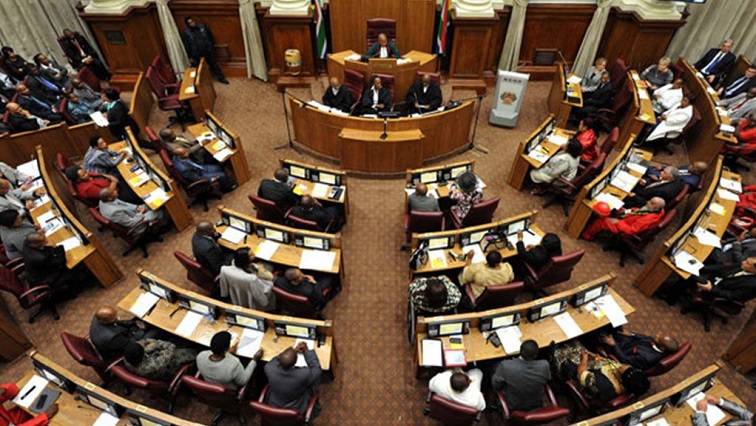Members of the National Council of Provinces (NCOP) had mixed views about the Council’s work over the past five years. They made their farewell speeches during the last plenary session of the NCOP, the sixth Parliament.
Some believe that significant progress has been made in the mandate and oversight responsibilities of the House during this term. Others, however, believe that there is a need to review the role of the NCOP in order to strengthen its capacity to carry out its work.
Members were emotional when they bid each other farewell after serving together for five years.
Chairperson of the NCOP Amos Masondo begins by stating some of the achievements made by the institution. This includes the bulk of the Bills it adopted since 2019. He attributes this to the work ethic of members over the five years.
“We set out to do by contributing to the crafting the policy priorities of the sixth Parliament. At the core of these was strengthening oversight and accountability. By doing so among other things improving the effectiveness of public involvement. Since then we made every effort to contribute to the progress and the strengthening of our democracy. We did so by ensuring that the NCOP carries out its mandate as directed by the constitution. And by ensuring where necessary innovative ways were employed to advance our mandate.”
Review of role
African National Congress Chief Whip in the NCOP Seiso Mohai says while the performance of the council has been good, she calls for a review of its role.
“Chair the second critical question relates to the persistent decline of the capacity of local government to fulfil its developmental functions and associated nominal increase in the number of government interventions in local administration. While the NCOP cannot be blamed for this, it, however, raises critical questions about its capacity to monitor the national and provincial government support to local government within the overall strategic mandate to deepen the cooperative governance system. It is my humble submission that it was not by accident among the resolution of the 54 ANC conference that called for the NCOP to critically review its role and reposition itself at the cutting edge of the intergovernmental intervention.”
Failures
Democratic Alliance delegate Cathlene Labuschagne says some of the failures of the NCOP in this parliamentary term relate to the implementation of the recommendations of the Zondo Commission.
“The sixth parliament also received the Zondo Commission Report as recommendations on State Capture. I need to highlight one aspect mentioned in this report also reflecting on the NCOP. The failure of parliament to discharge its constitutional responsibilities and obligations specifically with reference to oversight and accountability. The result of business as usual. The most important criteria to test the optimal function of the NCOP is firstly the NCOP’s constitutional mandate according to Section 424, it is to represent the provinces to ensure that provincial interests are taken into account in the national sphere of government.”
People’s parliament
Economic Freedom Fighters member Mmabatho Mokause criticises the NCOP for its failure in fulfilling its mandate on many issues.
“House Chairperson, this parliament, this council has failed to build an effective people’s parliament which is responsible to the needs of our people. Under the watchful eye of this parliament, black people spent yet ten stops in poverty, unemployment and high levels of crime. With gender-based violence remaining a pervasive challenge at a rate which women and children are being abused in this country, violated and killed.”
‘New beginning’
Inkatha Freedom Party MP Nhlanhla Rhadebe adds his voice in relation to some of the issues the NCOP had not achieved.
“As we conclude this sixth parliament one cannot help but experience a mixture of disappointment and hopefulness. As we reflect on the past five years, we see the continuance of the things that happened during the fifth parliament with the current ruling party entangled in the allegations of corruption and political abuse of government resources all at the expense of the very people it was supposed to serve. However, we remain hopeful that our country is on the path of a new beginning as 29th May 2024 will usher in the new much-needed change in government.”
NATIONAL ASSEMBLY PLENARY (HYBRID), 16 May 2024 https://t.co/MtwQmgUigr
— Parliament of RSA (@ParliamentofRSA) May 16, 2024

